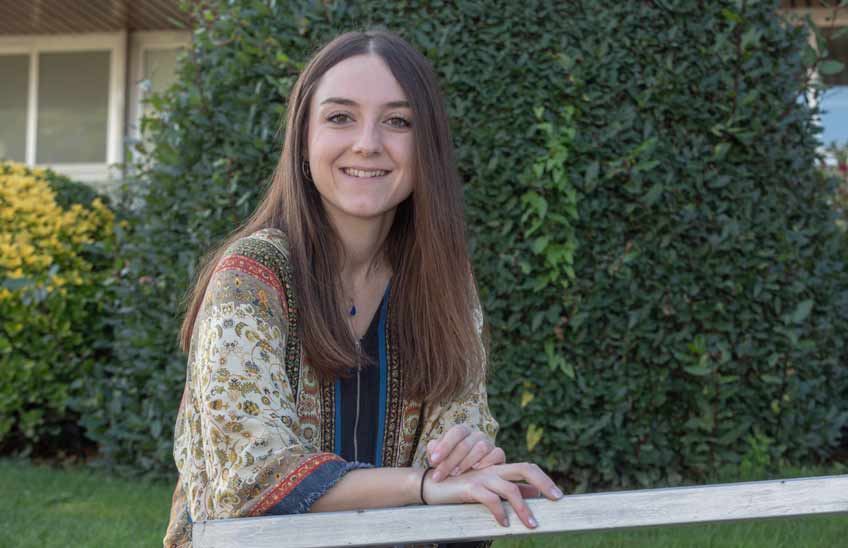Biodegradable packaging for a safer and more sustainable food supply
A study carried out at the University proposes the employment of metallic nanoparticles and preservatives for food packaging.

09 | 03 | 2023
Today, one fifth of the food produced in the world ends up in the garbage bin. Specifically, a total of 931 million tons of food are wasted every year, according to the United Nations Environment Program (UNEP, 2021). This overproduction involves the consumption of resources, such as water, and also the emission of CO2 into the atmosphere, derived both from the production of this food and the disposal of waste.
Leire Goñi has sought in her work to develop active packaging -those that incorporate antioxidant or antimicrobial substances such as metal nanoparticles and food preservatives- to improve the preservation of food and extend its shelf life, in order to avoid food waste. According to the researcher, the incorporation of these additives in the packaging -and not directly in the food- reduces the alteration of the product and the risks to the consumer. "The nanoparticles, by capturing light, generate oxygen radicals that are toxic for bacteria and harmless for people. On the other hand, food preservatives are also antimicrobial substances that prevent the growth of fungi, yeasts or bacteria in food," reports Chemistry from Navarra.
One of the most interesting results of this research is that the nanoparticles favor the degradation of plastic in different humidity and temperature conditions, which results in a better care of the environment. "We have observed that biodegradable plastic packaging incorporating these nanoparticles degrades three times faster in sewage wastewater than simple plastics. This result is very encouraging, as it would facilitate the rapid disposal of all food packaging and contribute to the care of the planet."
The latest tests on foodstuffs carried out by Leire Goñi have given positive results since " better preservation of physicochemical propertieshas been observed in cheese and apples packaged in the films we have developed". Leire Goñi is currently studying to what extent these packages are able to improve food preservation compared to traditional films, and also testing other types of food to check the effectiveness of the packages proposed in her research.
Although this study has been applied to the food sector, Goñi assures that the materials developed could have other uses, for example, in biomedical applications (bone prostheses and implantable devices, controlled release of drugs), water treatment and disinfection, elimination of air pollutants, among others.
Leire Goñi is a graduate in Chemistry (2017) and Biochemistry ), Master's Degree in faculty (2018) and PhD (2022) from the University of Navarra. In the next months she will start a postdoctoral stay at the Sorbonne Université in Paris.
Bibliographical references
→ Goñi-Ciaurriz, L., Senosiain-Nicolay, M., & Vélaz, I. (2021). Aging studies on food packaging films containing β-cyclodextrin-grafted TiO2 nanoparticles. International Journal of Molecular Sciences, 22(5) 2257. https://doi.org/10.3390/ijms22052257.
→ Goñi-Ciaurriz, L., & Vélaz, I. (2022). Antibacterial and degradable properties of β -cyclodextrin-TiO2 cellulose acetate and polylactic acid bionanocomposites for food packaging. International Journal of Biological Macromolecules, 216(June), 347-360. https://doi.org/10.1016/j.ijbiomac.2022.06.202. https://doi.org/10.1016/j.ijbiomac.2022.06.202
